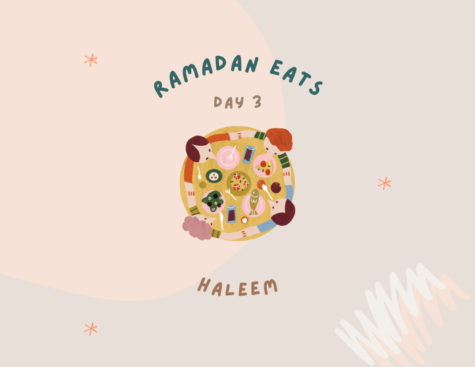Ramadan Eats: Haleem
Chicken noodle soup: the best known comfort and remedy for the common cold.
Beef stew: the heartiest way through to one’s heart and stomach.
Haleem: the oldest staple stew of the month of Ramadan.
Ramadan is an annual Islamic practice where adherents will fast during all hours of daylight, only eating before dawn and after sunset. There are many different varieties of food eaten during Ramadan, but the best comfort food is Haleem.
Made from lentils, spices, wheat rice, and meat, Haleem is a thick stew that is meant to be served warm and shared fresh.
Haleem is most common in countries located in the South and Southwest regions of Asia where it originated. Unlike the other lentil-based soups found in these countries, which are typically less dense and thinned, Haleem has much to be savored.
Because of Haleem’s thick consistency, it works well to keep people feeling full.
The option to consume soups like Haleem is especially important for those who spend the day fasting, as it is hard for people who do not eat for some time to immediately consume a full-course meal.
Haleem acts almost as a buffer between iftar, the name of the meal used by Muslims to break their fast at sunset, and the actual dinner itself, which is typically served later on in the evening.
Besides the simple practicality of Haleem, it is the contentment it provides that makes it not only popular during the month of Ramadan, but similar to so many of the other soups enjoyed in countries all across the world.
And, although Haleem’s thick consistency may make it somewhat of an outlier amongst most soups, it still works to serve people with a filling meal–topped with some fried onions as garnish–that can allow them to reminisce.
Through different flavorings and various textures, there is one feature that all soups seem to have in common with one another: the power of nostalgia.
From Hand-Me-Down family recipes to the common man’s Panera Bread, soups like Haleem are a source of familiarity in the form of a reliable meal.








